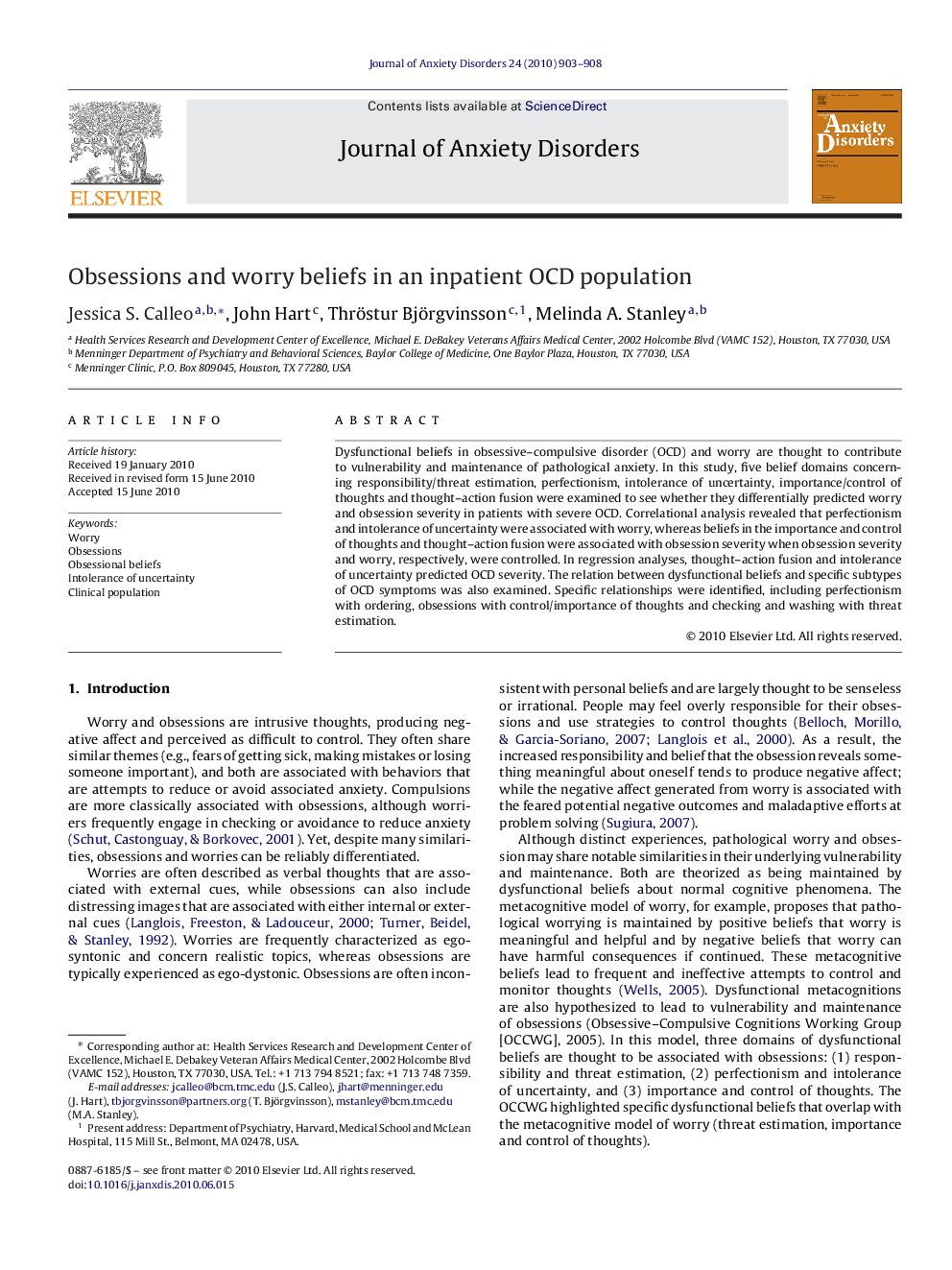| Article ID | Journal | Published Year | Pages | File Type |
|---|---|---|---|---|
| 909817 | Journal of Anxiety Disorders | 2010 | 6 Pages |
Dysfunctional beliefs in obsessive–compulsive disorder (OCD) and worry are thought to contribute to vulnerability and maintenance of pathological anxiety. In this study, five belief domains concerning responsibility/threat estimation, perfectionism, intolerance of uncertainty, importance/control of thoughts and thought–action fusion were examined to see whether they differentially predicted worry and obsession severity in patients with severe OCD. Correlational analysis revealed that perfectionism and intolerance of uncertainty were associated with worry, whereas beliefs in the importance and control of thoughts and thought–action fusion were associated with obsession severity when obsession severity and worry, respectively, were controlled. In regression analyses, thought–action fusion and intolerance of uncertainty predicted OCD severity. The relation between dysfunctional beliefs and specific subtypes of OCD symptoms was also examined. Specific relationships were identified, including perfectionism with ordering, obsessions with control/importance of thoughts and checking and washing with threat estimation.
